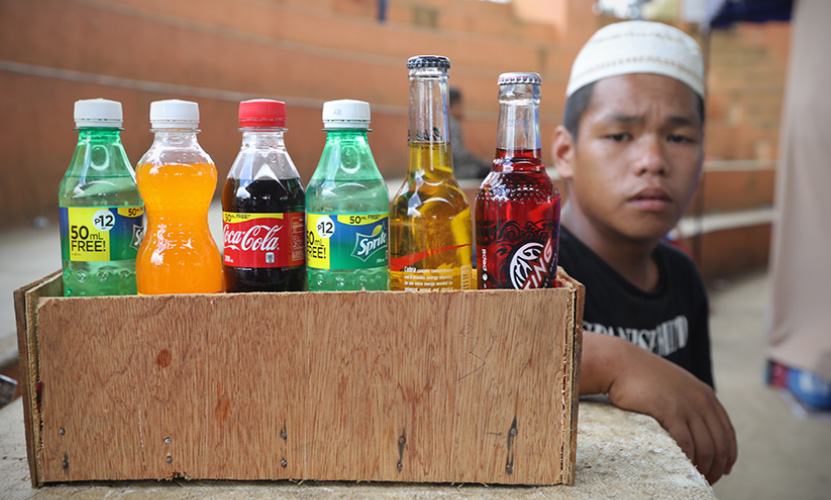
A content-based approach to the sugar-sweetened beverage (SSB) tax would generate more revenue for the government instead of a volume-based scheme, Senator Win Gatchalian has said as he called on the government to develop technological and knowledge capacities to implement the scheme.
Gatchalian revealed that the content-based system could generate P47 billion in government revenue by imposing a tax of 10 centavos per gram of sugar contained in a beverage. He likewise said the scheme would encourage sweetened beverage manufacturers to use less sugar in their products, thus improving the public health outcomes expected from the tax.
“The content-based scheme will penalize drinks which have more sugar. If the drink will have more sugar content, it will tend to be more expensive. So, there will now be an incentive for companies to lower down their sugar content to mitigate the increase in prices,” said Gatchalian during the Senate plenary debates on Senate Bill No. 1592, commonly known as the Tax Reform for Acceleration and Inclusion (TRAIN) Act.
“We can actually hit two birds with one stone – achieve the health purpose of this bill and, at the same time, achieve the revenue purpose of this bill,” he added.
Under SBN 1592, sweetened drinks will be subjected to a two-tiered tax scheme: based on volume during the first 2 years of implementation, followed by a mixed regime based on volume and content in succeeding years.
Gatchalian cited as examples the sport drink “Cobra”, which has 38.34 grams of sugar (equivalent to 9 teaspoons of sugar), instant (3-in-1) coffee (3.5 teaspoons) and soft drinks (5.2 teaspoons). Under the volume-based approach, the percentage price increase for the sports drink will only be 17%; while the instant coffee will increase by 25%; and for soft drinks, 76.25%.
According to Gatchalian, these figures show that the proposed volume-based scheme would essentially penalize drinks which have less sugar and might inadvertently shift consumption patterns, which he said would have an adverse effect on the operations of beverage factories.
At the same time, Gatchalian acknowledged the government’s handicap in carrying out the content-based approach, noting the estimate of the Food and Drug Administration that it would them as long as 5 years to build the technological and human capital requirements necessary for the full implementation of a contest-based scheme.
To solve this issue, Gatchalian proposed to allocate to the Food and Drugs Administration (FDA) the P1.3 billion the agency estimates it needs to address its lack of capacity to monitor the sugar content of beverages.
“P1.3 billion is actually a small investment if we project to earn so much from the SSB tax. We can actually allocate P1.3 billion immediately for them in the first few months, buy the necessary equipment and probably implement the content-based scheme as early as the two years prescribed by the law,” Gatchalian said.


